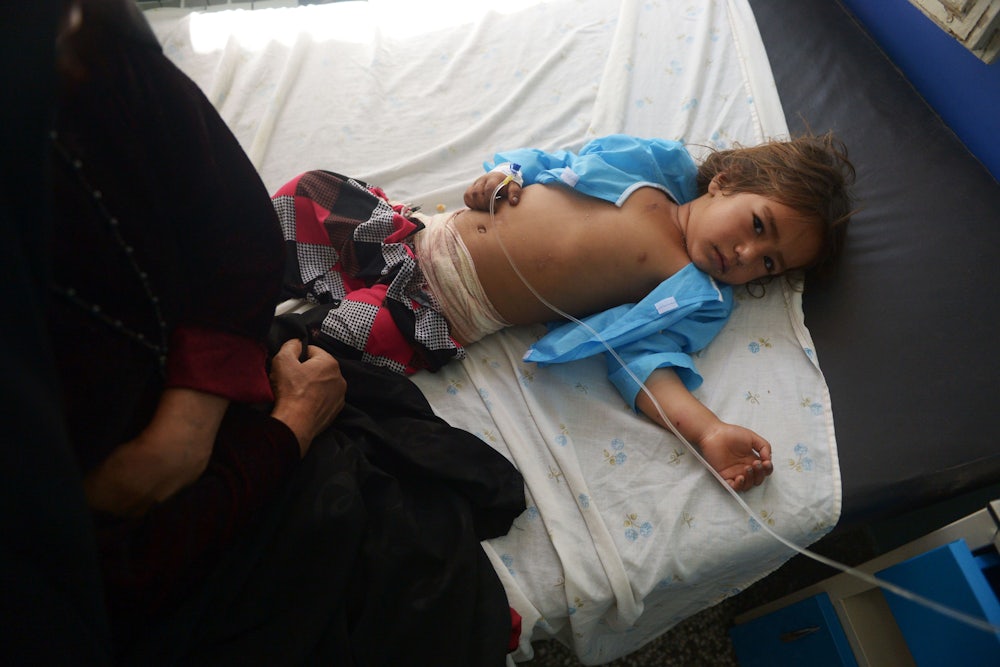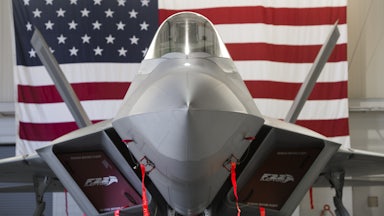A depressingly familiar theme has dominated the reports and commentary that have surfaced in the wake of the Taliban’s rapid takeover of Afghanistan in the aftermath of U.S. withdrawal: The end of 20 years of imperial war is a feminist disaster. “Women in Afghanistan Fear Return to a Repressive Past Under Taliban,” one New York Times headline declaimed. USA Today put it more condescendingly: “We can’t make a country care about its own women. Only Afghanistan can do that.”
And President Joe Biden’s adherence to Trump’s decision to pull troops out of the country has attracted ostensibly humanitarian pushback from both parties: “The decision to place a higher priority on a political promise than on the lives of innocent men, women, and children is a stain on America’s reputation and undermines our credibility around the world,” read a statement issued by Republican Senator Mitt Romney. Democratic Senator Jeanne Shaheen lamented the changing fortunes of Afghan “girls who grew up with freedoms, education, and dreams of building their country’s future.”
These sentiments mimic those that were trotted out two decades ago to fortify support for war in the first place: Representative Carolyn Maloney famously (and embarrassingly!) donned a burqa to deliver a Congressional speech lauding then-President George W. Bush for waging a just war that had the potential to liberate the brutalized women of Afghanistan. The Feminist Majority Foundation cheered on the U.S.-led invaders as a “coalition of hope” in a lengthy 2002 spread in Ms. magazine. Media coverage about women in Afghanistan skyrocketed in the months after the 9/11 attacks, which helped bolster public opinion regarding military intervention in the Central Asian country.
The fact that Afghan women really do face immense oppression makes their cynical use for war-stoking purposes almost unfathomably galling. While conditions may have improved for certain individual women in Afghanistan since the U.S. launched a ground war there in late 2001, the war was never waged on their behalf, and those who led the nation into war—along with everyone who has served to maintain the occupation since—never did so with the intention of securing an egalitarian future for the women of Afghanistan. Imperialism is not compatible with feminism, and the persistent assertions that it can be reflects the ugliest truths about both.
Many Americans’ understanding of war as a moral mechanism for liberation is overwhelmingly based on the wars that people socialized in the United States have the most familiarity with: the American Civil War and World War II, which ended the horrific atrocities of chattel slavery and genocide, respectively (even if those outcomes weren’t precisely the victors’ primary motivation). But they’re exceptions: History offers vanishingly few examples of wars that were actually worth a damn, and this is particularly true of nearly every U.S. military intervention since 1945, which were largely conducted to fortify American political and economic domination across the planet while wrecking countless lives in the process. If this sounds to you like the angsty ramblings of a college freshman home for Thanksgiving, I dare you to come up with a better or more concise explanation of what exactly the past few generations of American wars were intended to accomplish.
The so-called war on terrorism is no different. If the anti-Communist foreign policy misadventures of the twentieth century—think Cuba, Vietnam, and the Central American “Dirty Wars” of the 1980s—were more explicitly about attempting to squash leftist governments that were deemed to be threats to capitalist markets, the focus on “national security” following the September 11 attacks has been chiefly concerned with defending U.S. empire and economic hegemony around the world.
The centrality of global economic power to the war on terrorism was illustrated dramatically by Al Qaeda’s initial targets: the World Trade Center and the Pentagon. And while Afghanistan would hardly have been the preferred venue of Bush-era war hawks for a ground invasion were it not for the 9/11 attacks (they’d get their preferred conflict in Iraq soon after), it did prove to be a suitable cash grab for the corporate monstrosities that gobbled up trillions of dollars in not-always-accounted-for federal contracts while over 200,000 Afghans died. And they kept it going for 20 years, because everything about the colossal American war machine is jaw-clenchingly, nausea-inducingly, brain-poundingly, skin-crawlingly vile.
The downtrodden women of Afghanistan didn’t figure into any of this, aside from the way they could serve as a convenient prop in war propaganda efforts. Splashing their plight all over The New York Times and C-SPAN was a different flavor of “we must make the world safe for democracy”—a refillable justification to brutalize another country, only this time demonized within a liberal framework. (See also: knee-jerk wailing about Palestine’s record on gay rights.)
That anyone ever allowed themselves to be duped into believing that feminism could be imposed by an occupying power at gunpoint is supremely disgraceful. Women, you may recall, are part of society—and recent polling showed Afghanistan to be the saddest nation on Earth. The country’s poverty rate more than doubled over the course of the U.S. occupation, reaching 75 percent in the hardest-hit conflict zones. Child mortality rates steadily climbed, and millions of people were internally displaced. Women already face more poverty than men, and war tends to deepen existing gender inequality. Women frequently face assault in the social upheaval of armed conflict, and struggle to care for family members when basic needs are made scarce. As of 2018, with the war going on nearly long enough to reach legal adulthood, Afghanistan remained the worst place on Earth for women.
Put simply, there’s no such thing as feminist imperialism. There’s no such thing as a war that’s bad for men, but good for women. The insistence that the invaders who spent 20 years decimating villages whose broken pieces Afghan women now have to stitch back together were actually feminists who were on their side is breathtakingly callous: Not only does it gloss over the many men who were victims of the war, it also presumes that women weren’t.
This is the problem with the strain of bourgeois feminism that bolstered the case for war with Afghanistan: In the context of a violent, yearslong occupation of a profoundly poor country by an astoundingly rich one, hell-bent on guarding its wealth with military might, there can be no meaningful gender solidarity. It’s impossible to forecast the future for Afghan women, but for all of them to build dignified lives, they’ll require the same things as Afghan men: basic needs, economic security, and a world without Raytheon.








